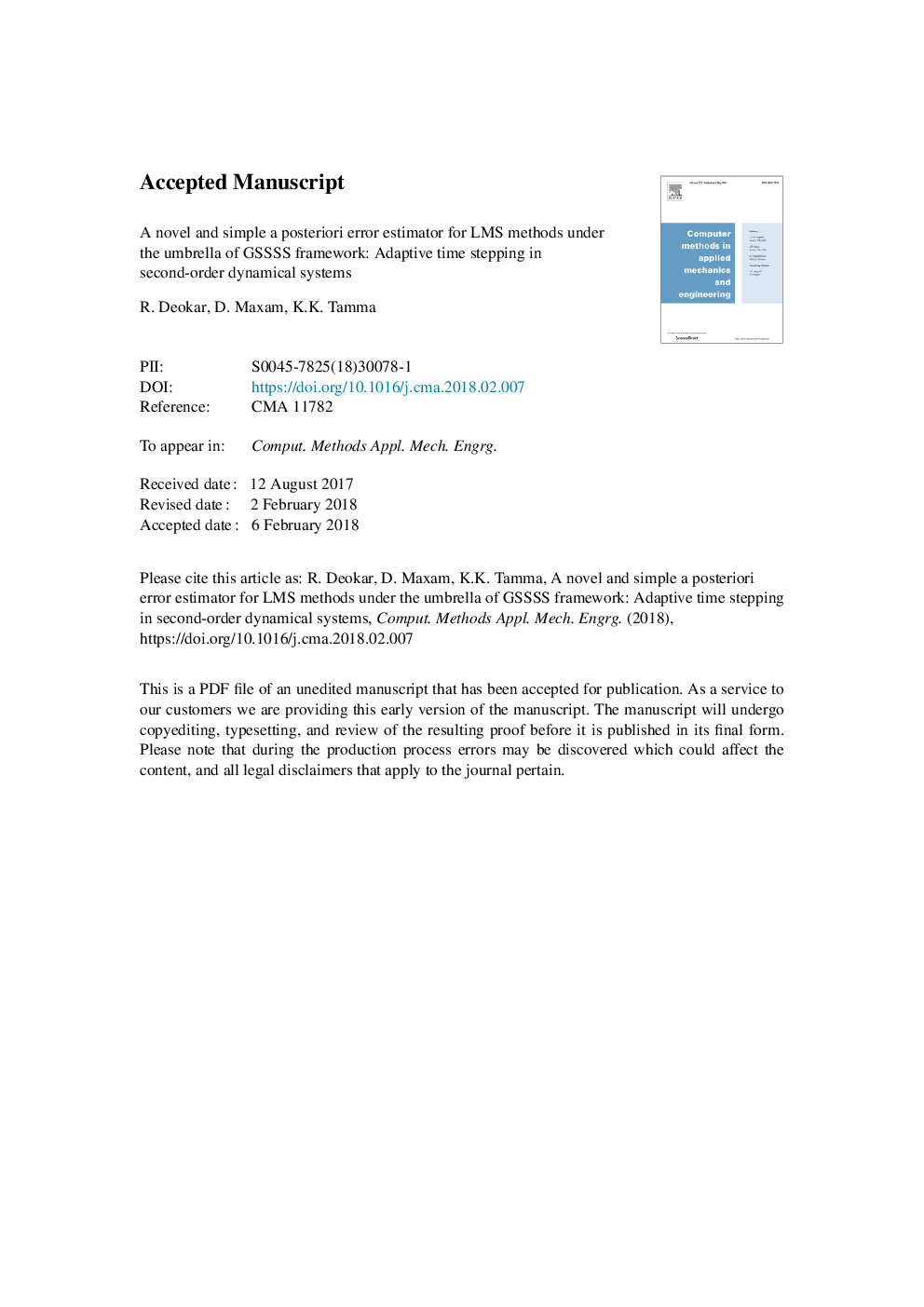| Article ID | Journal | Published Year | Pages | File Type |
|---|---|---|---|---|
| 6915555 | Computer Methods in Applied Mechanics and Engineering | 2018 | 40 Pages |
Abstract
A novel general purpose a posteriori error estimator that is agnostic to selection of time integration schemes arising under the umbrella of ”Generalized Single Step Single Solve” (GSSSS) framework and family of algorithms is proposed to foster adaptive time stepping; it encompasses the entire class of LMS methods for second order dynamical systems. Unlike several error estimators that have been applied to a limited selection of known time integration methods found in the literature, the proposed estimator offers a significant deviation and difference - that is, it is totally unconstrained from dependence upon algorithmic parameters and is general purpose. Consequently, it can be used for a wide class of numerically dissipative and non-dissipative algorithms for the general class of LMS methods without any modifications; the GSSSS family of algorithms encompasses most existing algorithms developed over the past 50 years or so as subsets, in addition to several new design developments and optimal algorithms arising from this framework. In addition, the proposed estimator is shown to possess the same order of convergence and error constant as the exact local error, which demonstrates its accuracy. The applicability of the proposed estimator to several but selected existing time integration algorithms including the well known schemes like the Newmark method, HHT- α, Classical midpoint rule and in addition, new algorithms and designs as well is demonstrated with single and multi-degree of freedom, linear and nonlinear dynamical problems. In addition, an adaptive time stepping procedure is employed to further demonstrate efficient implementation for multi-degree of freedom, linear and nonlinear dynamical systems.
Keywords
Related Topics
Physical Sciences and Engineering
Computer Science
Computer Science Applications
Authors
R. Deokar, D. Maxam, K.K. Tamma,
